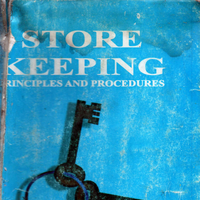Search
Books+
Searching 1,730 books
Search related to the career IT Manager
How to Manage Vendor Relationships
Managing vendor relationships effectively is crucial for the success of any business. Here are some key steps to help you manage your vendor relationships:
1. Establish Clear Expectations:
Clearly define your expectations and requirements when engaging with vendors. This includes product quality, delivery timelines, pricing, and any other specific needs your business may have.
2. Communicate Openly:
Maintain open lines of communication with your vendors. Regularly communicate your needs, concerns, and feedback. Encourage vendors to do the same, fostering a collaborative and transparent relationship.
3. Foster Mutual Trust:
Build trust with your vendors by being reliable, consistent, and fair in your interactions. Trust is the foundation of a strong vendor relationship and can lead to better collaboration and problem-solving.
4. Regularly Evaluate Performance:
Regularly assess your vendors' performance against agreed-upon metrics. This evaluation can help identify areas for improvement and provide an opportunity to recognize exceptional performance.
5. Address Issues Promptly:
If any issues arise, address them promptly and constructively. Clearly communicate the problem, work together to find a solution, and establish preventive measures to avoid similar issues in the future.
6. Seek Win-Win Solutions:
Approach vendor relationships with a mindset of mutual benefit. Look for opportunities to create win-win situations where both parties can achieve their goals and derive value from the partnership.
7. Maintain a Long-Term Perspective:
Vendor relationships should be viewed as long-term partnerships. Invest time and effort in building and nurturing these relationships to foster loyalty, reliability, and continuous improvement.
8. Stay Informed:
Keep yourself updated on market trends, industry standards, and new technologies relevant to your vendors' offerings. This knowledge will help you make informed decisions and engage in meaningful discussions with your vendors.
9. Consider Regular Performance Reviews:
Periodically conduct formal performance reviews with your vendors. These reviews can provide an opportunity to discuss strengths, weaknesses, and areas for improvement, ensuring alignment with your business objectives.
10. Explore Collaboration Opportunities:
Look for opportunities to collaborate with your vendors beyond the scope of your immediate needs. This could involve joint marketing efforts, knowledge sharing, or exploring new business opportunities together.
By following these steps, you can establish and maintain strong vendor relationships that contribute to the success of your business.
Source: Various AI tools
Relationships
Management
Entrepreneurship
Marketing
Books tagged marketing
Leaders
Books tagged leaders
Social entrepreneurship
Books tagged social entrepreneurship
Searched in English.

















































